Humans
Humans are members of the species Homo sapiens, which means "wise man" in Latin. They are the only extant members of the subtribe Hominina and originate from Africa, where they reached anatomical modernity about 200,000 years ago.
Physical Characteristics
- Skeletal System: Humans have a complex skeletal system made up of 206 bones that provide structure, support, and protection for the body.
- Brain: The human brain is highly developed and is responsible for consciousness, thought, and complex problem-solving.
- Reproductive System: Humans reproduce sexually, with females typically giving birth to live young after a gestation period of around nine months.
- Sense Organs: Humans have well-developed sensory organs, including eyes for vision, ears for hearing, and a complex nervous system for processing sensory information.
Behavior and Culture
Humans are known for their complex social structures, language, and cultural diversity. They engage in a wide range of activities, including art, music, storytelling, and religious practices. Humans also have a significant impact on the environment and the other species with which they share the planet.
Study Guide
Here are some key questions and topics to consider when studying humans:
- What are the major anatomical features of the human skeletal system?
- How does the human brain differ from that of other animals?
- What are the stages of human reproduction and development?
- How do humans perceive the world around them through their senses?
- What are some examples of human cultural practices and traditions?
- How have humans influenced the natural environment?
By exploring these questions and topics, you can gain a deeper understanding of the unique characteristics and behaviors of humans.
.◂Science Worksheets and Study Guides Fifth Grade. Flowers and seeds
Study Guide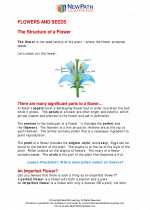 Flowers and seeds
Flowers and seeds  Activity Lesson
Activity Lesson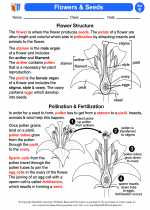 Flowers & Seeds
Flowers & Seeds  Worksheet/Answer key
Worksheet/Answer key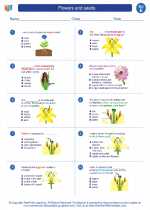 Flowers and seeds
Flowers and seeds  Worksheet/Answer key
Worksheet/Answer key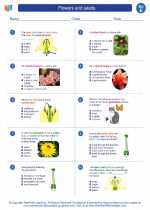 Flowers and seeds
Flowers and seeds  Worksheet/Answer key
Worksheet/Answer key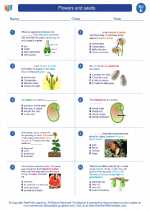 Flowers and seeds
Flowers and seeds  Worksheet/Answer key
Worksheet/Answer key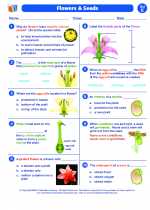 Flowers and seeds
Flowers and seeds  Vocabulary/Answer key
Vocabulary/Answer key Flowers and seeds
Flowers and seeds  Vocabulary/Answer key
Vocabulary/Answer key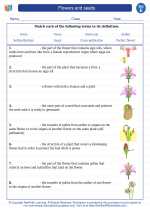 Flowers and seeds
Flowers and seeds 

 Activity Lesson
Activity Lesson
 Worksheet/Answer key
Worksheet/Answer key
 Worksheet/Answer key
Worksheet/Answer key
 Worksheet/Answer key
Worksheet/Answer key
 Worksheet/Answer key
Worksheet/Answer key
 Vocabulary/Answer key
Vocabulary/Answer key
 Vocabulary/Answer key
Vocabulary/Answer key

The resources above cover the following skills:
Life Science
All organisms have structures and systems with separate functions. Students can:
Develop and communicate an evidence-based scientific explanation of the role of different organs or structures that are important for an organism's survival - in both plants and animals